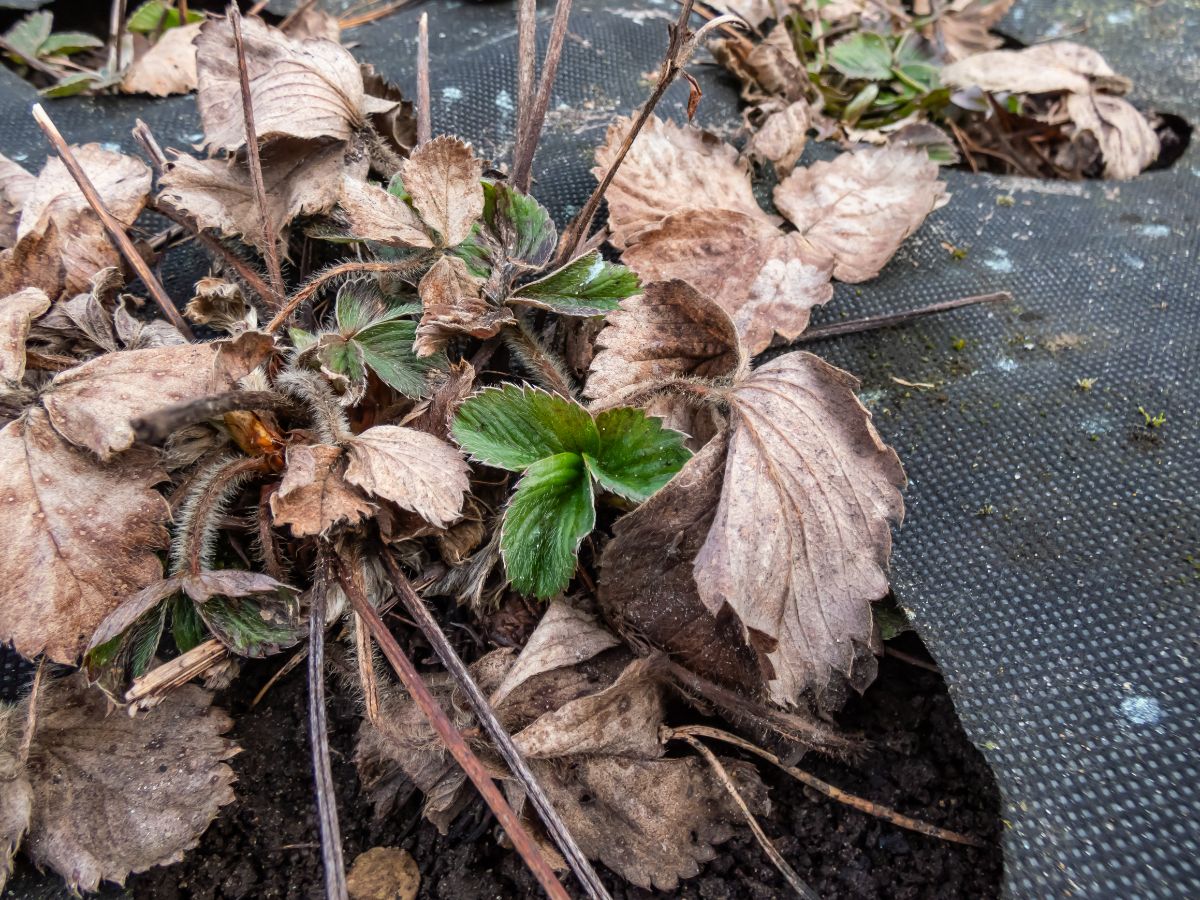Yes, dead leaves are good for the soil. As they decompose, they add organic matter to the soil, which provides nutrients for microorganisms and improves soil structure. The nutrients released include nitrogen, phosphorus, and potassium, which are essential for plant growth.
Alongside, dead leaves are not just a nuisance to clean up during the fall season; they can actually be beneficial for the health of your soil.
This natural process also enriches the soil with water-holding capacity. Additionally, dead leaves act as a natural mulch, helping to insulate the soil, prevent erosion, and suppress weed growth.
Why are dead leaves important for soil?
Dead leaves play a crucial role in soil health. As they decompose, they release essential nutrients that enrich the soil, improve its structure, and promote healthy plant growth.
If you are a gardener, then you may need to focus on some essential nutrients like Sulfur, Magnesium, and Calcium also NPK.
Dead leaves decompose, they contribute to the nutrient content and organic matter of the soil, creating a favorable environment for plants to thrive.
Let’s explore the various benefits that dead leaves bring to soil health.
Nutrient-Rich Organic Matter:
When dead leaves decompose, these nutrients are gradually released into the soil, providing a natural fertilizer for plants.
This process helps to replenish the soil’s nutrient content and supports healthy plant growth.
Improves Soil Structure And Water Retention:
Dead leaves, when added to the soil, improve their structure by enhancing their ability to hold water and air.
The organic matter in dead leaves acts as a sponge, helping the soil retain moisture and preventing it from drying out quickly.
This enhanced water retention capability is particularly beneficial for plants during dry periods, reducing the need for frequent watering.
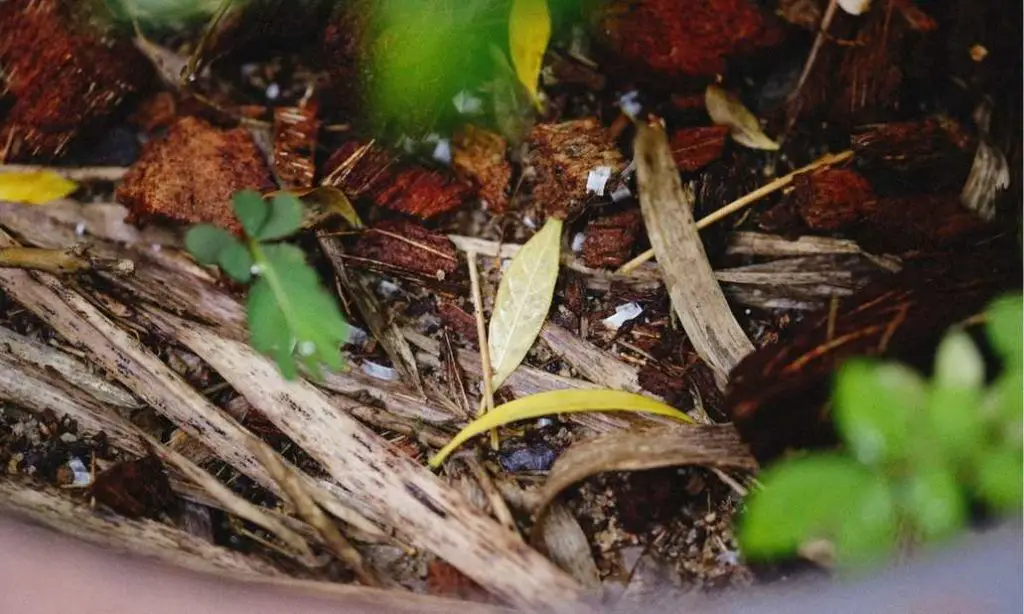
Enhances Microorganism Activity:
Dead leaves, with their rich organic content, foster an optimal habitat for microorganisms such as bacteria and fungi to flourish within the soil.
As these tiny but vital organisms proliferate, they play a crucial role in the decomposition of the organic material within the fallen leaves.
This breakdown process not only aids in the decomposition of leaves but also promotes the release of essential nutrients into the soil.
Moreover, the presence of these microorganisms acts as a boon for the soil’s overall fertility, as they improve nutrient cycling and bolster nutrient availability for plants, thereby creating a harmonious ecosystem that benefits both the soil and the flora it supports.
How do dead leaves decompose?
Dead leaves undergo a natural decomposition process, releasing vital nutrients that enrich the soil. Their gradual breakdown improves soil structure and fertility, making dead leaves an excellent source of organic matter for plants to thrive.
Microorganisms (Fungi, in particular, aquatic hyphomycetes) aid in breaking down dead leaves and initiate the decomposition process. They are responsible for 80 to 90 percent of the decomposition of dead plant and animal matter.
Let’s delve into this process further:
Step 1: Microorganism Activity – Dead leaves become a feeding ground for soil microorganisms like bacteria and fungi, initiating the decomposition process.
Step 2: Breakdown of Organic Compounds – Microorganisms secrete enzymes that target complex organic compounds in the leaves, such as cellulose and lignin, jumpstarting their decomposition.
Step 3: Nutrient Release – As microorganisms work their magic, they release essential plant nutrients, including nitrogen, phosphorus, and potassium, into the soil.
Step 4: Transformation into Humus – Over time, the once-vibrant leaves gradually transform into humus, a dark, organic matter that significantly enhances soil structure and fertility due to its nutrient-rich composition and water-retaining properties.
Step 5: Soil Enrichment – The decomposition process enriches the soil, improving its texture, water retention capacity, and nutrient availability, and creating an ideal habitat for beneficial soil organisms.
Step 6: Gradual Progress – Decomposition occurs slowly and can take several months to years, with the duration influenced by factors like environmental conditions, leaf composition, and microbial activity.
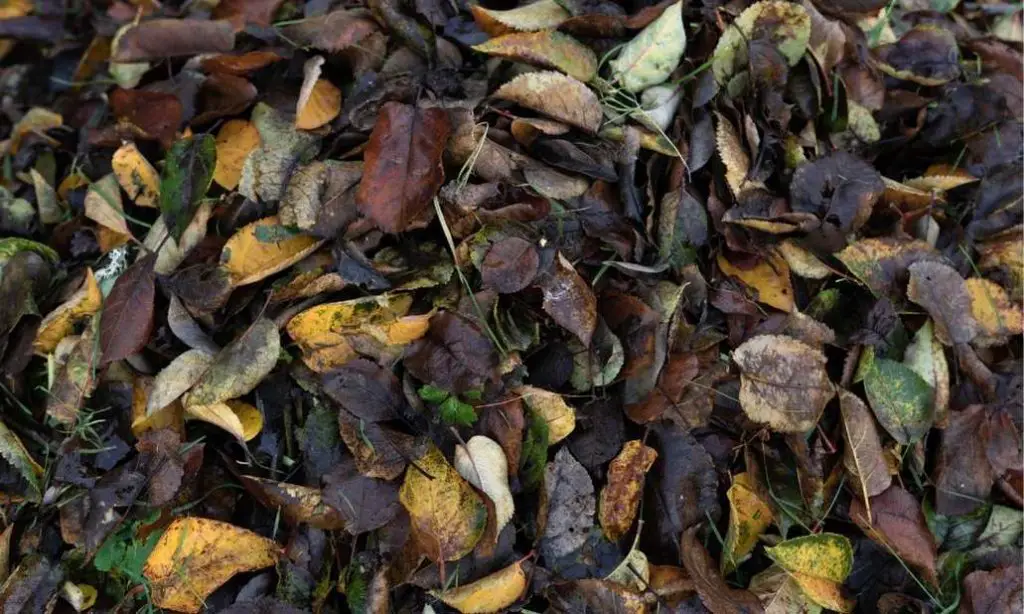
What are the benefits of dead leaves?
Dead leaves are often seen as a hassle, cluttering up lawns and gardens. However, before you sweep them away, consider the benefits they can provide to the soil.
When properly managed, dead leaves can contribute significantly to soil fertility and plant growth, while also offering natural weed suppression and preventing soil erosion.
Let’s take a closer look at these advantages:
Increased Soil Fertility
Dead leaves play a crucial role in enhancing soil quality and nurturing the environment. As these leaves decompose, they release vital nutrients such as nitrogen, phosphorus, and potassium into the soil, gradually bolstering its fertility.
Beyond nutrient enrichment, the organic matter present in dead leaves contributes to improving the soil’s structure, enabling it to retain moisture more effectively and enhancing the absorption of essential nutrients. In this way, the natural decomposition of fallen leaves not only supports plant growth but also fosters the overall health and resilience of the ecosystem.
Enhanced Plant Growth And Yields
When leaves fall from trees and turn into little pieces, they give food to the plants. This food helps the plants grow big and strong. It also makes the soil better for them, so their roots can be even stronger.
When plants have lots of good food and strong roots, they can make more beautiful flowers, yummy fruits, and delicious vegetables.
Natural Weed Suppression
When leaves fall on the ground, they make a cozy blanket for the soil. This cozy blanket keeps pesky weeds away. It’s like a superhero shield because it blocks the sun from reaching weed seeds. Those sneaky weeds can’t grow without sunshine! But that’s not all.
These leaves are also secret agents. They have special chemicals that are like natural weed killers. So, they stop the baby weeds from popping up. Leaves are like nature’s own weed fighters, helping our gardens stay nice and clean.
Prevention Of Soil Erosion
Leaves that fall from trees may seem like a mess, but they actually help our soil a lot! When those leaves stay on the ground, they stop the rain from being too rough on the dirt. This way, the soil doesn’t get washed away, and it stays nice and firm.
The leaves make a sort of blanket, which stops water and wind from moving the soil around too much. That’s important because it keeps the soil healthy and full of good stuff for plants. So, these leaves help make the ground strong and great for growing things.
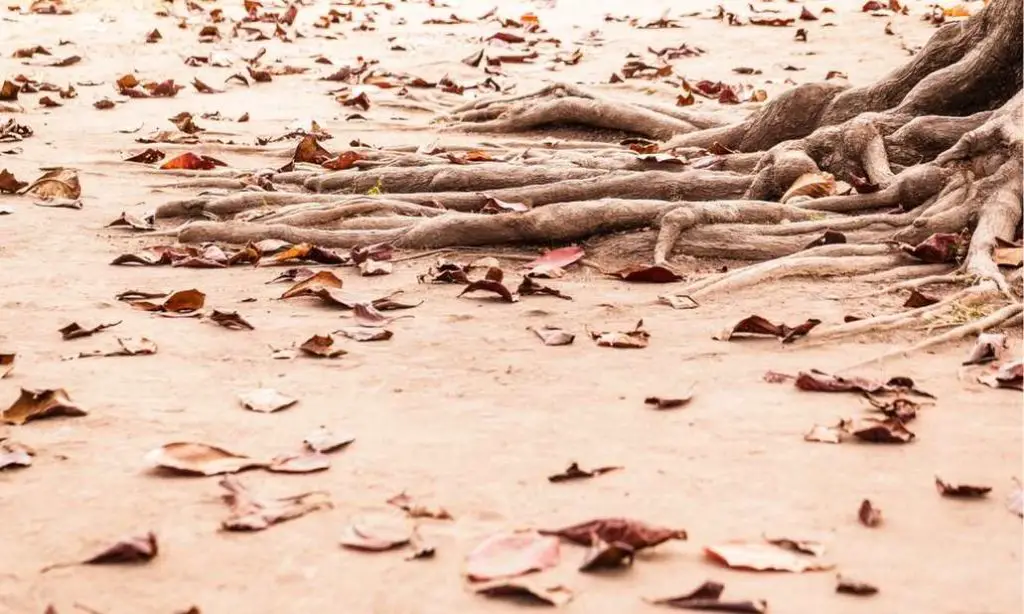
How To Use Dead Leaves As A Soil Amendment?
If you want to make your garden healthier and help your plants grow better, using dead leaves is a great idea! You can do different things with them. First, you can shred the leaves into tiny pieces and put them on top of your soil. This will make the leaves break down slowly and give important nutrients to your plants. It also stops pesky weeds from growing.
Another way to use dead leaves is to put a thick layer of them around your garden or your plants. This keeps the soil warm and moist. As the leaves break down, they make the soil better, and they invite helpful earthworms to come and live in your garden.
If you collect the dead leaves and mix them with other things like grass clippings and kitchen scraps, you can make compost. Compost is like plant food that you can put in your garden. Shred the leaves into small bits, and turn the compost pile sometimes to help it break down faster. In a few months, you’ll have dark, crumbly compost ready to make your garden happy.
You can also use dead leaves directly by shredding them and putting them on your garden beds or around your plants. This helps the soil hold water, helps the roots grow, and stops the soil from getting too hard. Remember to add new leaves every year to keep your soil nice and healthy.
Considerations And Tips For Using Dead Leaves
Dead leaves are a valuable addition to soil due to their nutrient-rich composition. Properly Using dead leaves in your garden can be really helpful for your soil.
These leaves have lots of good stuff in them that your plants will love. Here’s some important stuff to remember when you want to use dead leaves in your garden.
1) Choosing The Right Type And Amount Of Dead Leaves:
You should pick leaves from trees that lose their leaves in the fall, like oak or maple trees. These leaves break down easily and give your soil the good stuff it needs. Don’t use leaves that look sick or have bugs on them.
They can make your plants sick too. Also, don’t use too many leaves. Just about 25-30% of your soil should be leaves. Too many leaves can stop water and food from getting to your plants.
2) Properly Preparing Dead Leaves For Soil Application:
You can make the leaves smaller by cutting them up or using a machine called a garden shredder. This helps the leaves break down faster.
You can also mix the leaves with other kitchen scraps or grass clippings to make a special dirt called compost. Compost is great for your plants. Don’t forget to give your leaves some water if they’re too dry.
3) Timing And Frequency Of Using Dead Leaves In Soil:
The best time to use dead leaves is in the fall. They will break down during the winter and give your soil good stuff for the spring.
But if you want, you can use dead leaves any time of the year. Just don’t use too many, and watch how your plants are doing. If they need more, you can add more.
Are Dead Leaves As Soil Pollutants?
Dead leaves are not considered soil pollutants. In fact, they can be quite beneficial for soil health when used properly. When dead leaves decompose, they release nutrients into the soil, enriching it and providing a natural source of organic matter. This organic matter improves soil structure, and moisture retention, and promotes beneficial microbial activity, all of which are essential for healthy plant growth.
However, it’s important to use dead leaves in moderation and follow proper techniques for their application, as mentioned in the previous response. If dead leaves are used excessively or without the necessary precautions, they could potentially lead to imbalances in the soil composition or create an unwanted barrier that may affect the penetration of water nutrients.
So, while dead leaves are not pollutants, responsible and measured use is key to their successful integration into the garden ecosystem.

Credit: www.thespruce.com
Frequently Asked Questions On Are Dead Leaves Good For Soil
Is It Bad To Leave Dead Leaves In Soil?
No, it is not bad to leave dead leaves in the soil. In fact, leaving dead leaves in the soil can be beneficial. They break down over time, enriching the soil with organic matter and essential nutrients. This helps improve soil structure and moisture retention, promoting healthier plant growth.
Do Dead Leaves Enrich Soil?
Yes, dead leaves enrich the soil. When left to decompose, they provide organic matter and nutrients to the soil, benefiting its overall health and fertility. This enrichment contributes to better conditions for plant growth.
Do Dead Leaves Act As Fertilizer?
Yes, dead leaves act as a natural fertilizer. As they decompose, they release nutrients into the soil, functioning as a source of nourishment for plants, similar to traditional fertilizers.
Can I Till Dead Leaves Into My Garden?
Yes, you can till dead leaves into your garden soil. This practice helps enrich the soil with organic matter and nutrients, ultimately enhancing its fertility. Tilling dead leaves is a natural and sustainable way to improve your garden’s health.
Conclusion
Overall, incorporating dead leaves into the soil can be a cost-effective and environmentally friendly way to enhance soil fertility and plant growth. So, you should Incorporate it in your garden.

I am a graduate of Bangladesh Agricultural University, where I delved into various agricultural disciplines, equipping me with a profound understanding of agriculture. Beyond academics, I have hands-on experience in gardening and crop cultivation. My passion is to embrace sustainable farming and horticulture. With a BSc in Agriculture, I am dedicated to promoting environmentally conscious and efficient agrarian practices.
Bachelor of Science (BSc) in Agriculture (Hons.)
Master of Science. (Sustainable Agriculture & Food Security ) (MS)
Bangladesh Agricultural University
